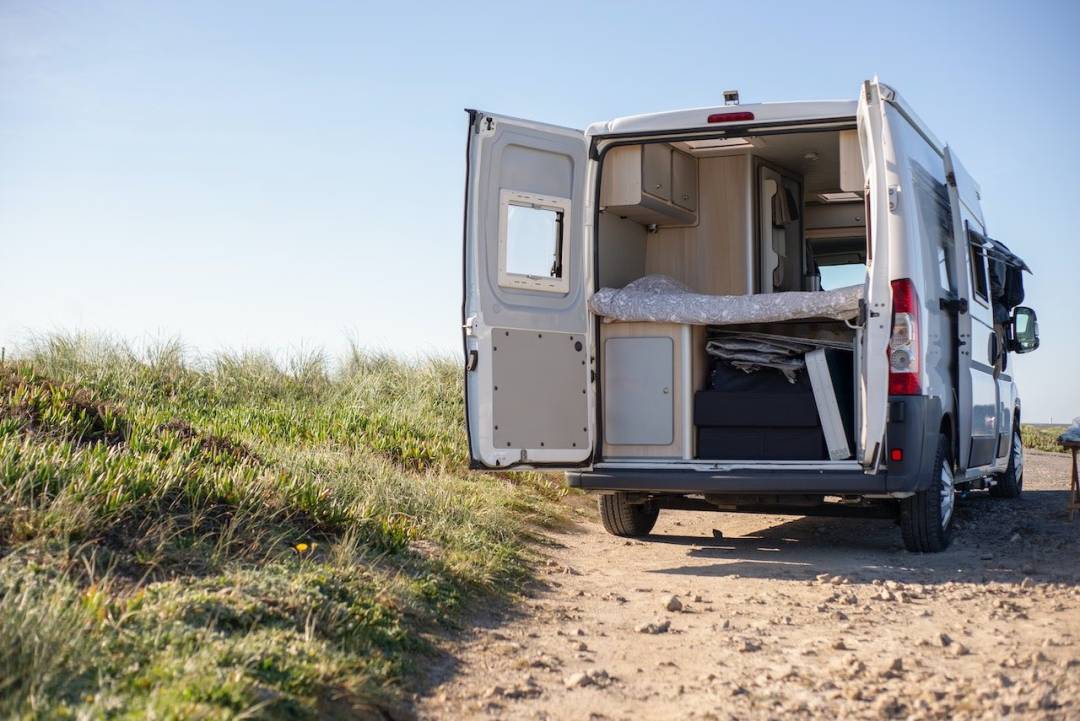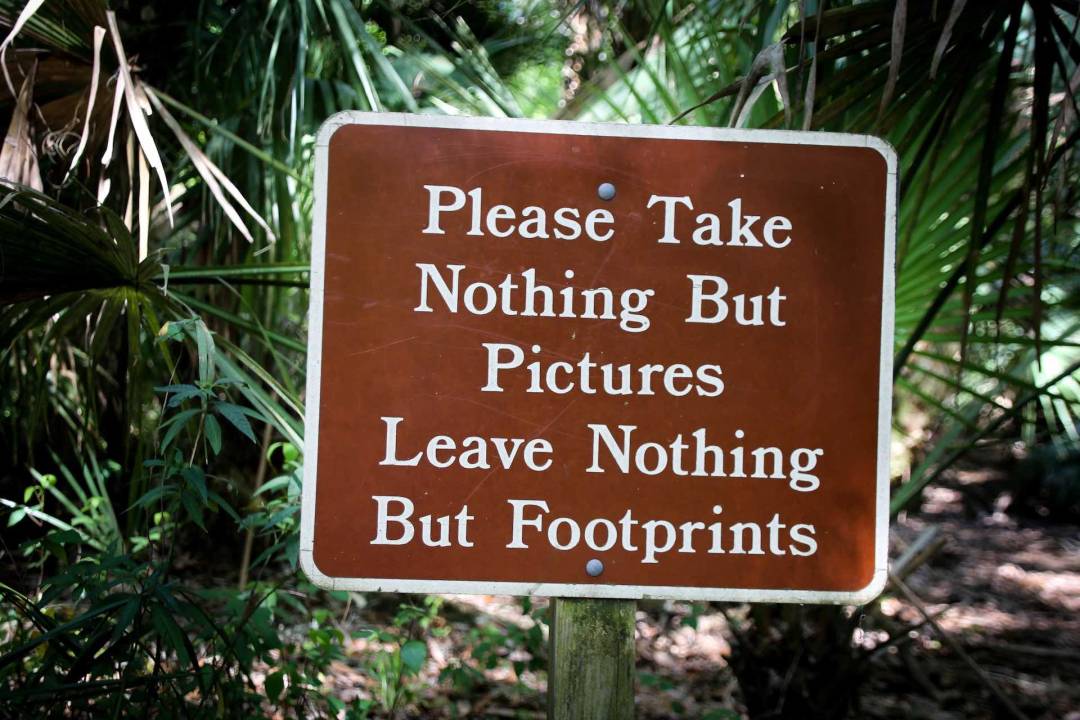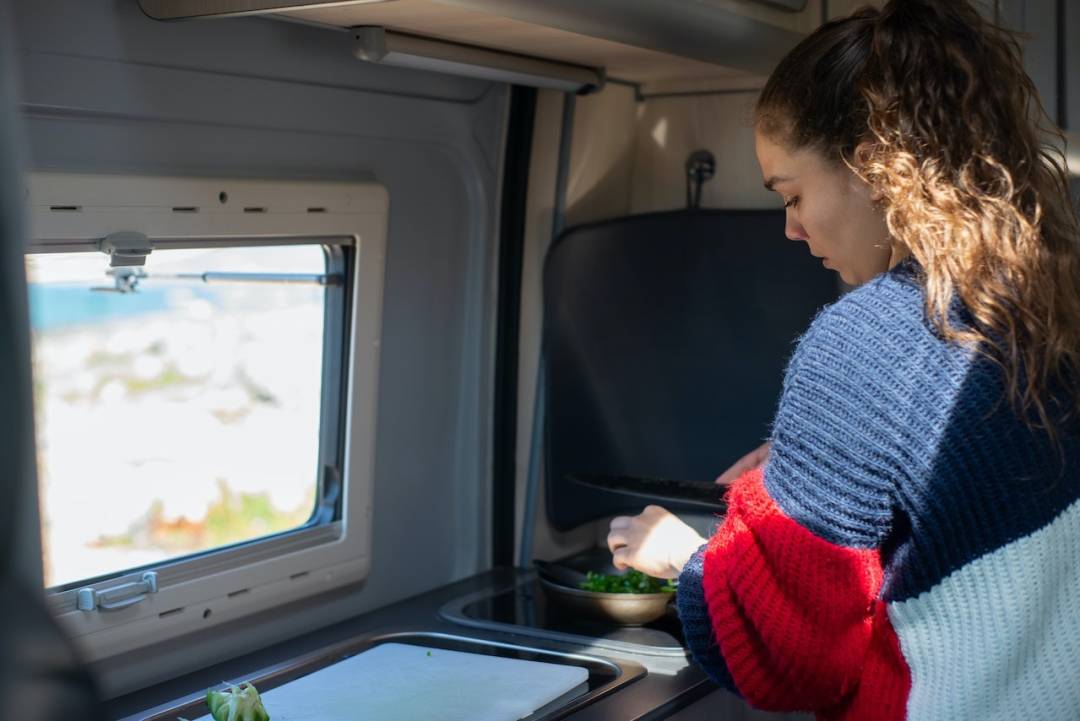Eco-Vanners Guide: Sustainable Tips for Campervan Living
Attention all campervan enthusiasts, it's time to step up your sustainable living game! This Eco-Vanner's Guide is designed to give you some practical tips and tricks for hitting the road with minimal environmental impact - whether you're road-tripping or full-time digital nomad! So grab your reusable coffee mug, let's dive into the world of eco-friendly campervan adventures.
Find Caravan Storage
Browse caravan storage for rent
Find Caravan Storage1. Reducing Waste on the Road
The first step in becoming an eco-vanner is to minimise waste while travelling. The easiest way to do this is by ditching single-use plastics and investing in reusable alternatives. Here are some ideas to help you get started:
- Reusable shopping bags: Keep a stash of reusable bags in your campervan for groceries and other shopping needs. They're lightweight, take up little space, and can help you avoid the waste of single-use plastic bags.
- Ditch disposable plates and cutlery: Invest in a set of durable, reusable plates, cups, and utensils. Not only are they better for the environment, but they're also more pleasant to use than flimsy disposable versions. If you prefer lightweight options, consider bamboo or stainless steel.
- Pack a reusable water bottle: Avoid single-use plastic water bottles by bringing a reusable bottle that you can refill. Many campgrounds and public spaces have water refill stations, making it easy to stay hydrated while reducing plastic waste.
- Waste management: Keep a small trash can in your campervan for easy waste management. Sort your waste into separate containers for recycling, composting, and landfill, and dispose of them responsibly at designated facilities.
- Meal planning: To reduce food waste, plan your meals in advance, and only buy the ingredients you need. Use a meal planning app or a simple notebook to track your grocery list and meal ideas. This not only helps you minimise food waste but can also save you money and time.
- Storing leftovers: Instead of using plastic wrap or single-use plastic containers, store your leftovers in reusable containers with lids. Glass or stainless steel containers are excellent options, as they can go from fridge to oven to table with ease. Silicone food storage bags are another eco-friendly alternative, as they are reusable and can be easily cleaned.

2. Maximising Fuel Efficiency
While campervans aren't exactly known for their fuel efficiency, there are a few tricks you can employ to maximise your miles per gallon. By following these tips, you'll not only save money on fuel but also reduce your carbon emissions:
- Proper tire inflation: Slightly flat tires can significantly reduce your fuel efficiency. Check your tire pressure regularly and keep them properly inflated according to the manufacturer's recommendations. This simple step can improve your fuel economy by up to 3%.
- Avoid idling: Idling wastes fuel and produces unnecessary emissions. Whenever possible, turn off your engine when you're parked or waiting for an extended period.
- Remove unnecessary weight: Extra weight in your campervan can decrease fuel efficiency. Evaluate the items you're carrying and remove anything unnecessary. Travel light and only pack what you truly need for your road trip.
- Drive at slower speeds: Driving at high speeds can drastically reduce your fuel efficiency. Opt for a slower, more leisurely pace when travelling, and you'll save fuel and enjoy the scenery more.
- Use cruise control: When driving on highways, use cruise control to maintain a steady speed. This can help improve fuel efficiency by avoiding constant acceleration and deceleration.
- Regular maintenance: Keep your campervan in tip-top shape with regular maintenance. A well-maintained vehicle runs more efficiently, so make sure to change the oil, replace air filters, and perform other routine maintenance tasks as recommended by the manufacturer.
- Plan your route: Choose the most fuel-efficient route for your trip. Use GPS or mapping apps to find the shortest or most direct route, and avoid unnecessary detours or stops.
- Consider a hybrid or electric campervan: If you're in the market for a new campervan, consider a hybrid or electric model for even better fuel efficiency. While the initial investment may be higher, you'll save on fuel costs and reduce your environmental impact in the long run.
Related
Exploring Britain’s Hidden Gem Campervan Destinations
3. Eco-Friendly Campervan Conversions
Converting an old van into an eco-friendly campervan is not only a fun DIY project but also a great way for campervan owners to reduce their carbon footprint. Here are some tips to make your campers vans as eco-friendly as possible:
- Choose a used vehicle: By upcycling a used vehicle, you're giving it a new life and helping to keep it out of the landfill. Look for a well-maintained van with low mileage and a solid structure that you can retrofit to your needs.
- Sustainable materials: Opt for sustainable materials like reclaimed wood, bamboo, or cork when building out your interior. These environmentally friendly options not only have a lower ecological impact but also add character and warmth to your campervan.
- Energy-efficient lighting: Install energy-efficient LED lights in your campervan. LEDs use less energy and have a longer lifespan than traditional bulbs, which means you'll save money on electricity and replacement costs.
- Insulation: Proper insulation is crucial for maintaining a comfortable temperature inside your campervan and reducing energy consumption. Choose eco-friendly insulation materials like sheep's wool or recycled denim, which are effective insulators and have a lower environmental impact.∂
- Composting toilet: Consider investing in a composting toilet to reduce water waste and eliminate the need for harsh chemicals. These toilets transform human waste into compost, which can be used to fertilize non-edible plants.
- Energy-efficient appliances: Equip your campervan with energy-efficient appliances like a solar-powered refrigerator, propane stove, or induction hob. These options will help you save energy and reduce your carbon footprint.
- Water-saving fixtures: Install water-saving fixtures like low-flow faucets and showerheads to conserve water. Additionally, consider using a foot pump for your sink to control water usage more effectively.
Related
Caravan Revamp on a Budget: Boost Your Mobile Home Comfort
4. Responsible Travel: Leaving No Trace
Embracing the "leave no trace" philosophy is essential for any eco-vanner, as it ensures that the beautiful natural environments we explore remain pristine for future generations. By adopting these practices, you can minimise your impact on the environment while still enjoying the great outdoors:
- Leave campsites cleaner than you found them: Before leaving your campsite, do a thorough sweep to ensure all rubbish is cleared. If you find any litter left by others, remove it and set a positive example for fellow campers.
- Avoid sensitive ecosystems: Be mindful of the ecosystems you're visiting and avoid camping in sensitive areas like wetlands, fragile meadows, or wildlife habitats. Always choose established campsites, and follow posted signs and guidelines to protect these delicate environments.
- Stay on established trails: When hiking or exploring, stick to marked trails to minimise soil erosion and disturbance to native plants and animals. Resist the urge to venture off-trail, as it can cause unnecessary damage to the environment.
- Biodegradable soap: Opt for biodegradable soap when washing dishes, clothes, or yourself. These soaps break down naturally and have a lower impact on the environment. Keep in mind that even biodegradable soap should be used sparingly and at least 200 feet away from water sources.
- Minimise campfire impact: Use established fire rings, fire pans, or portable stoves for cooking instead of making new fire pits. Put out fires completely and scatter cool ashes. In areas with fire restrictions, adhere to the regulations and avoid making a fire altogether.

5. Solar Power and Green Energy Solutions
Harnessing the sun's power is a fantastic way to make your campervan more eco-friendly. By adopting green energy solutions, you can minimise your reliance on fossil fuels and reduce your overall environmental impact. Here are some ways to incorporate renewable energy sources into your campervan lifestyle:
- Solar panels: Install solar panels on your van's roof to generate electricity for your appliances and gadgets. Choose the right size and power output to match your energy needs, and consider flexible panels if you have limited space or want to preserve your van's looks. Not only will you be using clean, renewable energy, but you'll also save money on fuel and campsite fees by being less reliant on grid power.
- Solar chargers: For smaller energy needs, invest in a portable solar charger. These devices can charge your smartphone, camera, or other gadgets directly from the sun. They're lightweight, easy to pack, and perfect for off-grid adventures.
- Portable wind turbine: If solar power isn't an option, consider a portable wind turbine as an alternative green energy source. While not as efficient or consistent as solar power, a wind turbine can create electricity in areas with strong and consistent wind. It's an excellent backup option or complementary energy source for your solar panels.
- Energy-efficient appliances: To make the most of your renewable energy sources, equip your campervan with energy-efficient appliances. This includes choosing a solar-powered refrigerator, propane stove, or induction hob, which consume less energy and work well with solar power systems.
- Energy management system: Install an energy management system in your campervan to monitor and optimise your energy usage. These systems can help you track your energy consumption, manage battery charging, and even control appliances to ensure you're using power efficiently.
6. Local and Sustainable Food Choices for Campervan Living
One of the joys of campervan living is exploring local cuisine, but it's essential to make sustainable food choices. By being mindful of what you eat and where it comes from, you can minimise your environmental impact and support local communities. Here are some tips for incorporating local and sustainable food choices into your campervan lifestyle:
Related
Caravan Cooking: Simple and Delicious Recipes for the Road
- Shop at farmers' markets: Farmers' markets are a fantastic way to access fresh, local, and seasonal produce while supporting the local economy. You'll often find a wide variety of fruits, vegetables, and other products that are grown or made in the region you're visiting.
- Support local, organic, and ethically-produced food: When shopping for groceries or dining out, look for food that is locally produced, organic, and ethically sourced. This not only supports local farmers and businesses but also reduces the carbon footprint associated with food transportation.
- Cook from scratch: Cooking your meals from scratch using fresh, whole ingredients is not only healthier but also more sustainable. By preparing your meals, you have control over the ingredients and can ensure that they come from sustainable sources.
- Reduce food waste: Plan your meals in advance and buy only what you need to minimise food waste. Store leftovers in reusable containers and consider using a meal planning app to help you keep track of the groceries you have on hand.
- Eat less meat: Reducing your meat consumption can significantly impact your carbon footprint. Opt for plant-based meals or choose sustainably sourced fish and seafood when possible. When you do eat meat, select organic and locally-produced options.

7. Renting a motorhome from a private owner with Goboony
Another way of ensuring sustainable campervan living is to rent a motorhome from someone! Our Partners at Goboony can help with this – they have the largest fleet of motorhomes to rent in the UK. By sharing, we reduce the number of cars and motorhomes on the road and ensure they are not sitting idle! So check Goboony out for your next road trip.
Conclusion
By following the tips in this Eco-Vanner's Guide, you'll not only reduce your environmental impact but also enhance your campervan experience. Sustainable living is more than just a trend – it's a way of life that allows us to enjoy our planet responsibly while preserving it for future generations of campervan enthusiasts. So, go ahead, hit the road, and enjoy the adventure, knowing you're doing your part to protect our beautiful planet.
Remember, every little effort counts, and by adopting sustainable practices, you'll inspire others to follow suit. As campervan enthusiasts, we have the unique opportunity to explore the world while minimising our impact. So, let's embrace our role as eco-vanners and make sustainable living an essential part of our campervan adventures.
Safe travels, and happy eco-adventuring!
Find Caravan Storage
Browse caravan storage for rent
Find Caravan StorageElliot
Written 30th May 2023
